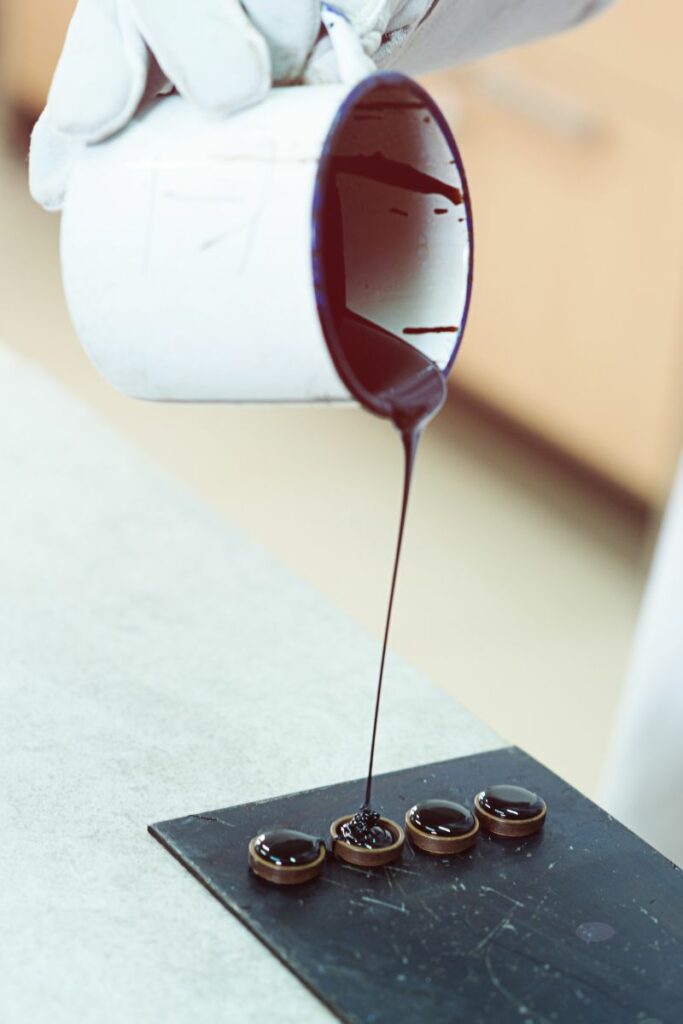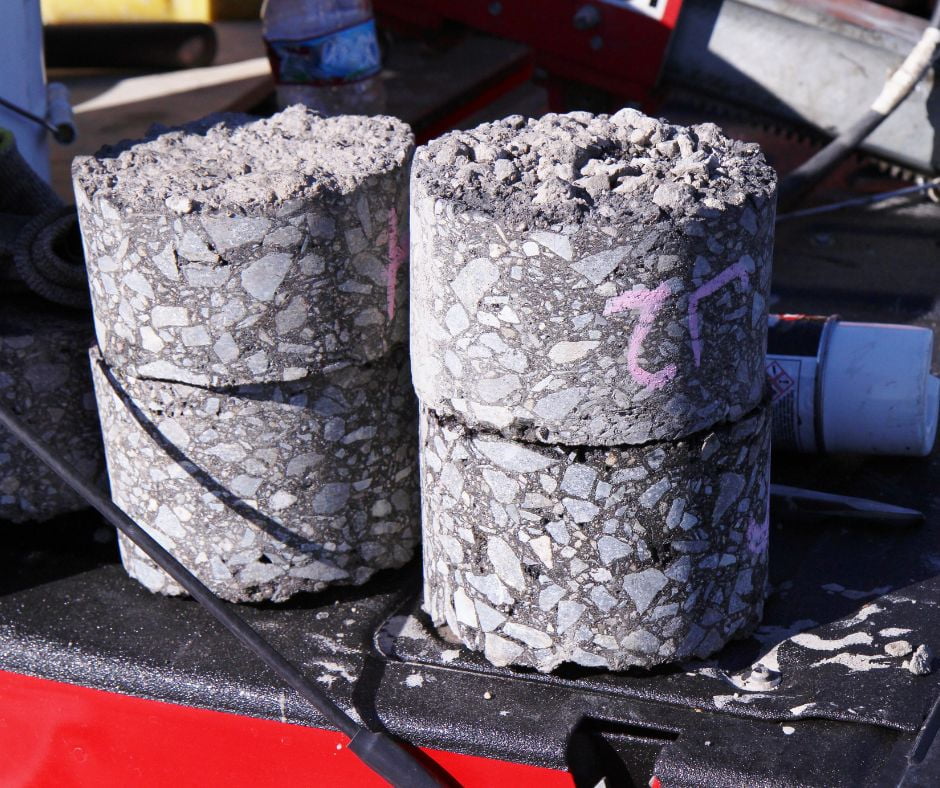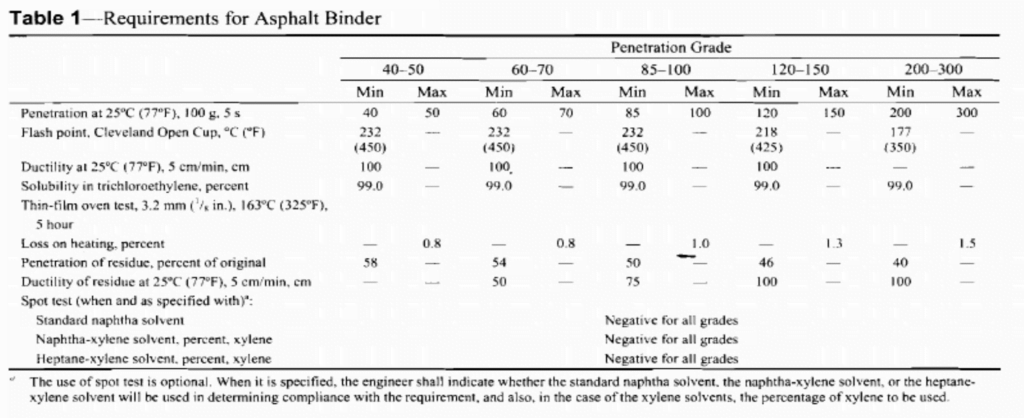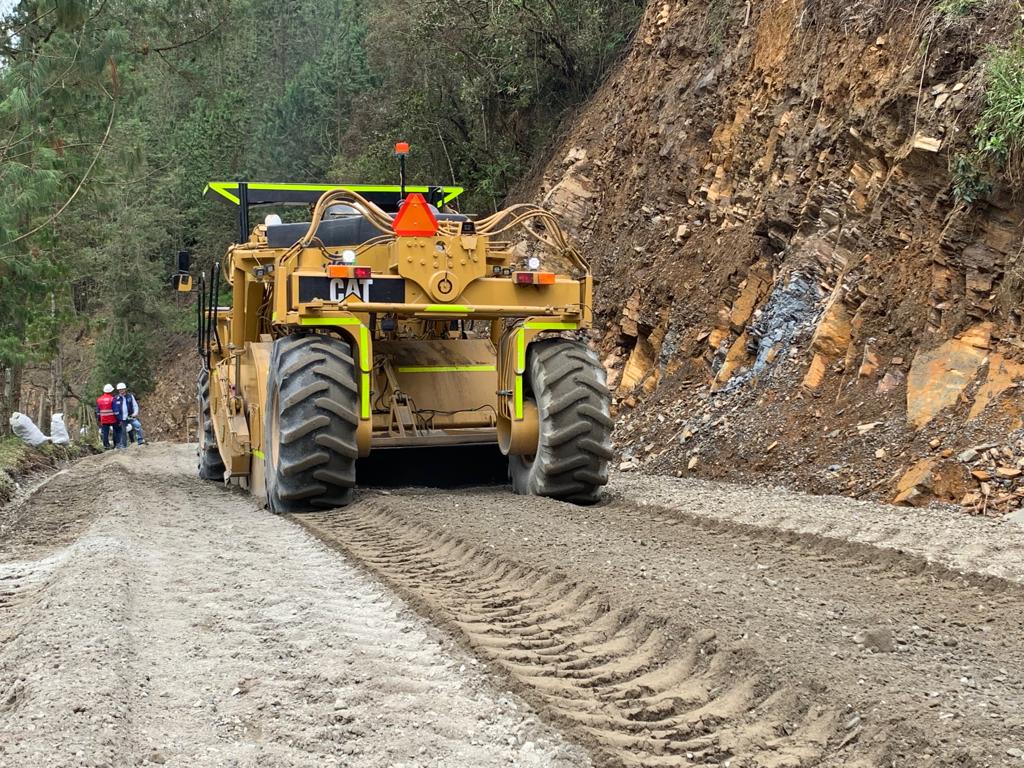What is 60/70 Penetration Graded Bitumen?
60/70 Penetration Graded Bitumen is a specific grade of bitumen, also known as asphalt cement, characterized by its penetration value, which ranges between 60 and 70 tenths of a millimeter (6.0 to 7.0 millimeters). This measurement indicates the hardness of the bitumen and its suitability for various applications in road construction and industrial uses.

How was 60/70 Penetration Graded Bitumen developed?
The development of 60/70 Penetration Graded Bitumen involved refining crude oil through a process called fractional distillation. This method separates the different components of crude oil based on their boiling points, resulting in a material with specific penetration characteristics. Over time, standardization and quality control measures were implemented to ensure consistency and performance.
Where is 60/70 Penetration Graded Bitumen commonly used?
60/70 Penetration Graded Bitumen is commonly used in the construction of highways, airport runways, and other infrastructure projects requiring durable and resilient paving materials. Its hardness and performance characteristics make it ideal for use in regions with moderate to heavy traffic and varying weather conditions.
Properties of 60/70 Penetration Graded Bitumen
What are the physical properties of 60/70 Penetration Graded Bitumen?
The physical properties of 60/70 Penetration Graded Bitumen include its penetration value (60-70 tenths of a millimeter), viscosity, softening point, and ductility. These properties determine the bitumen’s ability to withstand deformation, resist high temperatures, and provide long-lasting performance.
What is the chemical composition of 60/70 Penetration Graded Bitumen?
60/70 Penetration Graded Bitumen is composed of a complex mixture of hydrocarbons, including asphaltenes, resins, oils, and saturates. These components give the bitumen its characteristic properties, such as adhesiveness, waterproofing capability, and resistance to weathering.
How does 60/70 Penetration Graded Bitumen perform under different conditions?
60/70 Penetration Graded Bitumen performs well under various conditions, maintaining its integrity and functionality in both high and low temperatures. It exhibits good resistance to cracking in cold climates and remains stable and non-deformable in hot environments, making it a versatile choice for different geographical regions.
Manufacturing Process
How is 60/70 Penetration Graded Bitumen produced?
The production of 60/70 Penetration Graded Bitumen involves refining crude oil through fractional distillation, followed by further processing to achieve the desired penetration grade. The refining process includes heating, distillation, and blending to produce bitumen with consistent quality and performance characteristics.
What quality control measures are in place during production?
Quality control measures during the production of 60/70 Penetration Graded Bitumen include regular testing of physical and chemical properties, adherence to industry standards, and continuous monitoring of the refining process. These measures ensure that the final product meets the required specifications and performs reliably in its intended applications.
Application Techniques

How is 60/70 Penetration Graded Bitumen applied?
60/70 Penetration Graded Bitumen is applied using various techniques, including hot mix asphalt paving, spray applications, and bituminous macadam. The choice of application method depends on the specific project requirements, such as the type of surface, traffic load, and environmental conditions.
What equipment and tools are needed for application?
The application of 60/70 Penetration Graded Bitumen requires specialized equipment and tools, including asphalt pavers, rollers, sprayers, and mixing plants. Proper calibration and maintenance of this equipment are essential to ensure uniform application and optimal performance.
What safety considerations should be taken into account?
Safety considerations during the application of 60/70 Penetration Graded Bitumen include the use of personal protective equipment (PPE), proper handling and storage of bitumen, and adherence to safety protocols to prevent accidents and exposure to harmful fumes. Training and awareness programs for workers are also crucial to maintain a safe working environment.
Advantages of 60/70 Penetration Graded Bitumen
What are the durability and longevity benefits of 60/70 Penetration Graded Bitumen?
60/70 Penetration Graded Bitumen offers excellent durability and longevity, making it a preferred choice for high-traffic roads and infrastructure projects. Its resistance to cracking, deformation, and weathering ensures a long service life and reduced maintenance costs.
How cost-effective is 60/70 Penetration Graded Bitumen?
The cost-effectiveness of 60/70 Penetration Graded Bitumen lies in its durability and low maintenance requirements. While the initial investment may be higher compared to other materials, its long-term performance and reduced need for repairs result in overall cost savings.
What is the environmental impact of using 60/70 Penetration Graded Bitumen?
The environmental impact of using 60/70 Penetration Graded Bitumen is relatively low compared to other construction materials. It is recyclable, and its production process has been optimized to minimize emissions and energy consumption. However, proper disposal and recycling practices are essential to mitigate any negative environmental effects.
Challenges and Considerations
What common issues arise during the application of 60/70 Penetration Graded Bitumen?
Common issues during the application of 60/70 Penetration Graded Bitumen include improper mixing, inadequate compaction, and temperature fluctuations. These issues can lead to reduced performance, premature failure, and increased maintenance requirements.

What solutions and recommendations are available for these issues?
Solutions for addressing common issues with 60/70 Penetration Graded Bitumen include thorough quality control, proper training for workers, and the use of advanced equipment and technologies. Regular inspections and maintenance can also help identify and rectify problems early, ensuring long-term performance.
Case Studies
What are some real-world examples of 60/70 Penetration Graded Bitumen usage?
Real-world examples of 60/70 Penetration Graded Bitumen usage include major highway projects, airport runways, and urban road networks. These projects demonstrate the material’s durability, performance, and suitability for various applications.
What lessons have been learned from these applications?
Lessons learned from these applications highlight the importance of proper planning, quality control, and adherence to best practices. Successful projects showcase the benefits of using 60/70 Penetration Graded Bitumen, while challenges encountered provide valuable insights for future improvements.

Future Trends
What innovations are emerging in bitumen technology?
Innovations in bitumen technology include the development of modified bitumen, advanced recycling techniques, and the use of sustainable materials. These innovations aim to enhance performance, reduce environmental impact, and improve the overall efficiency of bitumen applications.
How might 60/70 Penetration Graded Bitumen be used in the future?
Future uses of 60/70 Penetration Graded Bitumen may involve new applications in smart infrastructure, climate-resilient roadways, and advanced construction methods. Continued research and development will further expand its potential and adaptability.
Frequently Asked Questions
What are the key differences between 60/70 Penetration Graded Bitumen and other bitumen grades?
Key differences between 60/70 Penetration Graded Bitumen and other bitumen grades lie in their penetration values, physical properties, and performance characteristics. These differences determine their suitability for specific applications and environmental conditions.
How does 60/70 Penetration Graded Bitumen perform in various environmental conditions?
60/70 Penetration Graded Bitumen performs well in a range of environmental conditions, including extreme heat and cold. Its stability, flexibility, and resistance to deformation make it a reliable choice for diverse climates.
What maintenance is required for surfaces using 60/70 Penetration Graded Bitumen?
Maintenance for surfaces using 60/70 Penetration Graded Bitumen includes regular inspections, prompt repairs of cracks and potholes, and periodic resurfacing. Preventive maintenance practices help extend the lifespan and maintain the performance of bitumen surfaces.
British Standard (BS) Specifications for 60/70 Penetration Graded Bitumen
| Property | Test Method | Specification |
|---|---|---|
| Penetration at 25°C (0.1 mm) | BS EN 1426 | 60-70 |
| Softening Point (°C) | BS EN 1427 | 46-54 |
| Ductility at 25°C (cm) | BS EN 13589/BS EN 13398 | Minimum 100 |
| Flash Point (°C) | BS EN ISO 2592 | Minimum 230 |
| Solubility in Trichloroethylene (%) | BS EN 12592 | Minimum 99.0 |
| Specific Gravity at 25°C | BS EN 15326 | 1.01-1.06 |
| Loss on Heating (wt%) | BS EN 12607-1 | Maximum 0.5 |
| Residue Penetration after Heating (%) | BS EN 1426 | Minimum 55 |
| Kinematic Viscosity at 135°C (mm²/s) | BS EN 12595 | 350-450 |
| Fraass Breaking Point (°C) | BS EN 12593 | Maximum -5 |
| Storage Stability (Difference in Softening Point, °C) | BS EN 13399 | Maximum 2 |
AASHTO Specifications for 60/70 Penetration Graded Bitumen
| Property | Test Method | Specification |
|---|---|---|
| Penetration at 25°C (0.1 mm) | AASHTO T 49 | 60-70 |
| Softening Point (°C) | AASHTO T 53 | 46-54 |
| Ductility at 25°C (cm) | AASHTO T 51 | Minimum 100 |
| Flash Point (°C) | AASHTO T 48 | Minimum 230 |
| Solubility in Trichloroethylene (%) | AASHTO T 44 | Minimum 99.0 |
| Specific Gravity at 25°C | AASHTO T 228 | 1.01-1.06 |
| Loss on Heating (wt%) | AASHTO T 47 | Maximum 0.5 |
| Residue Penetration after Heating (%) | AASHTO T 49 | Minimum 55 |
| Kinematic Viscosity at 135°C (mm²/s) | AASHTO T 201 | 350-450 |
| Fraass Breaking Point (°C) | AASHTO T 314 | Maximum -5 |
| Storage Stability (Difference in Softening Point, °C) | AASHTO T 316 | Maximum 2 |
This table outlines the key properties and test methods for 60/70 Penetration Graded Bitumen as per British Standards (BS) and American Association of State Highway and Transportation Officials (AASHTO). These specifications ensure the bitumen’s quality and performance for various applications.
Penetration Grade Bitumen: An Ideal Bitumen for Road Construction
When it comes to constructing durable and reliable road infrastructure, the choice of bitumen is paramount. Penetration grade bitumen, particularly the 60/70 bitumen, has emerged as a favored choice in road construction due to its exceptional properties and versatile applications. In this article, we will delve into the various aspects of penetration bitumen 60/70, exploring its applications, production process, properties, specifications, and packaging.
What are the Applications of Penetration Bitumen 60/70?
Penetration-graded bitumen 60/70 finds extensive use in road construction and maintenance due to its intermediate level of hardness and durability. This type of bitumen is ideal for producing asphalt mixtures that can withstand the stress and strains of heavy traffic loads and adverse weather conditions. It is commonly used in the construction of flexible pavements, where the asphalt layers need to be flexible enough to accommodate dynamic loads.
Moreover, 60/70 penetration asphalt cement is used in the manufacturing of bituminous products like emulsions, cutbacks, and modified bitumen. It serves as a key ingredient in surface treatments, sealing and jointing compounds, and waterproofing materials. Its versatility makes it an essential component in the construction industry, ensuring the longevity and reliability of road infrastructure.
How is 60/70 Bitumen Produced?
The production of 60/70 bitumen involves the refining of crude oil through a process called fractional distillation. During this process, crude oil is heated and separated into various fractions based on their boiling points. Bitumen is obtained from the heaviest fraction of crude oil, which is then further processed to meet the desired specifications.
To produce penetration bitumen 60/70, the bitumen is subjected to a series of tests to determine its penetration value, which indicates the hardness of the material. The penetration value refers to the depth in tenths of a millimeter to which a standard needle penetrates the bitumen sample under specified conditions of time, temperature, and applied load. 60/70 Asphalt Cement has a penetration value ranging between 60 and 70 decimillimeters, hence its denomination.
Properties of Penetration Grade 60/70 Bitumen

Penetration bitumen 60/70 exhibits a set of essential properties that make it suitable for road construction. Its intermediate hardness ensures that it strikes a balance between flexibility and stability. This property allows it to withstand traffic loads and temperature fluctuations without undergoing excessive deformation. The bitumen’s adhesive properties ensure proper bonding between aggregates, providing strength to the asphalt mixture.
Furthermore, 60/70 bitumen has excellent water resistance, preventing moisture from seeping into the road structure and causing damage over time. Its thermal properties contribute to its ability to expand and contract with temperature changes, reducing the risk of cracking and rutting on the road surface.
Specifications of Penetration Grade Asphalt Cement 60/70
Various international standards define the specifications for penetration bitumen 60/70. These standards lay out the requirements for penetration values, softening points, ductility, and other important characteristics. For example, the American Society for Testing and Materials (ASTM) and the European Standard EN 12591 provide guidelines for the properties and testing methods of penetration grade bitumen, and the base for the product specifications are found in the M 20-70 (2004) Penetration Graded Asphalt Cement AASHTO (American Association of Highway and Transportation Officials) specification, described ahead.

What is 60/70 Bitumen?
The numerical values in the term “60/70 bitumen” correspond to the penetration range of the bitumen. The first number, 60, represents the lower limit of penetration in decimillimeters, while the second number, 70, represents the upper limit. This classification gives users a clear idea of the bitumen’s hardness and suitability for various applications.
Packing of Penetration Bitumen

Penetration bitumen 60/70 is typically supplied in bulk or packed in various containers, including drums, bags, and bulk shipments in tanker trucks. At Pro-Road, the most common way of packing is the big bags or bitu-bags, since they are a practical and cost-efficient way of shipping and storing asphalt dement. Proper packaging ensures that the bitumen remains in optimal condition during transportation and storage, ready to be used in road construction projects.
In conclusion, penetration grade bitumen 60/70 has established itself as an indispensable material in road construction due to its versatile applications and exceptional properties. Its balance between hardness and flexibility, water resistance, and thermal stability makes it a prime choice for creating robust road infrastructure that can withstand the challenges of heavy traffic and changing weather conditions. With meticulous adherence to specifications and proper packaging, bitumen 60/70 continues to contribute to the development of durable and reliable roads worldwide.

Contact us to get to work
We have a talented team, the best materials, tools, and equipment at your disposal.

